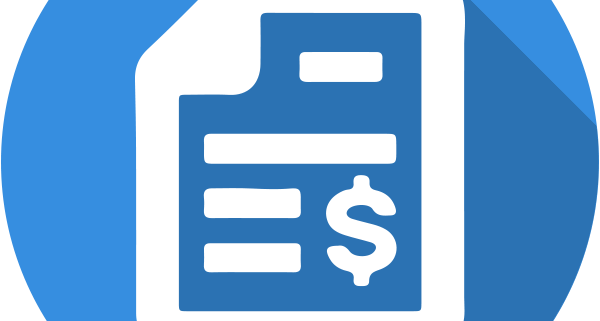Legal services are expensive, but low-income individuals can access free or low-cost legal assistance. There are a number of organizations that provide pro bono or reduced fee services for those who cannot afford a lawyer. Knowing where to look and what options are available can help make the process of finding legal aid more manageable.
What Are Your Options for Free or Low-Cost Legal Services?
The availability of free or low-cost legal services varies depending on the individual’s circumstances and specific needs. However, several resources are available to those in need of legal assistance without breaking the bank. Here’s an overview of some common sources for free or reduced fee legal services:
1. Pro Bono Organizations
Many law firms and individual lawyers offer pro bono (free) work to select clients who cannot afford to hire a private attorney. Pro bono work is typically offered by attorneys volunteering their time and expertise to assist people in need of legal services. Some organizations specialize in offering pro bono programs, while others may require that potential clients prove financial need before being accepted as a client. To find an organization that offers pro bono services in your area, you can search online or contact local bar associations in your state.

2. Lawyer Referral Services
Lawyer referral services exist nationwide and can be used to connect qualified individuals with experienced attorneys willing to provide discounted rates on legal fees. Suppose you’re facing a complicated issue such as divorce or bankruptcy. In that case, these types of programs can be helpful in cutting down on costs associated with obtaining professional help from an attorney. The cost for using this type of service typically ranges from $50-$100 per hour, depending on the complexity of the case and difficulty level involved with resolving it.
3. Legal Aid Clinics
Legal aid clinics offer free or low-cost advice from volunteer attorneys and paralegals working under the supervision of experienced lawyers at non-profit law offices throughout the United States. These clinics often focus on providing assistance related to family law matters such as adoption, child support enforcement, custody disputes, divorce proceedings, name changes, wills & estates planning, etc.. However, certain clinics also cover other areas such as consumer protection and housing laws issues. Many states also have court systems that operate self-help centers designed specifically for indigent individuals who cannot afford representation by a private lawyer but still need professional guidance navigating through complex court systems without it costing them an arm and leg financially speaking!
4. Online Legal Forms Services
For those who don’t necessarily need the full representation of a solicitor, but still require some assistance in drafting documents such as contracts, wills & trust agreements, some online form providers offer affordable solutions ranging from $10-$30 per document prepared, depending on the complexity involved – making it significantly cheaper than hiring someone directly! In addition, many websites now offer access to public records, allowing users to do quick & easy research if needed!
5. Small Claims Court
Depending on the nature of your dispute – filing small claims cases within one’s county may be another option instead of pursuing costly litigation processes involving lawyers & lengthy court proceedings; small claims courts allow litigants who represent themselves (as opposed to having a lawyer represent them) to present arguments regarding matters up to certain monetary limits set within each state’s jurisdiction (usually $2K-$5K limits). This route could potentially be less expensive (or even free) as claimants don’t have to retain/pay additional legal fees as they are already representing their own interests during hearings on their respective cases before the judges presiding over such proceedings!
6. Self-representation
This is probably one of the most cost-effective ways to assist oneself legally – despite lack of formal training/experience; if one has to tackle certain matter(s) alone, then it would obviously be beneficial to research relevant information pertaining thereto extensively before initiating any action thereof so that one fully understands the nuances involved before proceeding accordingly! Consulting books/online resources on rules/laws applicable to the situation, as well as finding knowledgeable contacts within the relevant field, should also be considered when devising a strategic plan for the future!
7. Community-based programmes
Community-based programs such as “legal hotlines” provide confidential hotline numbers that connect callers directly to trained volunteers who are equipped to answer questions on various topics such as landlord-tenant disputes, domestic violence referrals, lease review, etc.-thereby providing accessible resources that would otherwise be difficult to obtain without seeking specialized attention directly from licensed professionals elsewhere! Furthermore, as these lines tend to operate 24 hours a day, 7 days a week, the accessibility factor makes them particularly useful when emergencies arise unexpectedly at odd hours when normal office operations are normally closed.

8. Take advantage of technology
Technology advancing exponentially these days provides a plethora of opportunities to take advantage of virtual presence via the internet – either join webinars/video conferencing sessions get necessary guidance embark on the journey towards understanding subject matter at deeper levels OR simply utilise the abundance of freely available literature aimed at educating the general public about laws, regulations relevant part of world we live in today! Whichever route you choose, rest assured that the knowledge gained will be an invaluable asset should you ever face dilemmas where a comprehensive understanding of said subject matter is required to navigate the scenario effectively!
Conclusion
Finding free or low-cost legal assistance doesn’t have to be an overwhelming task, fortunately, there are many resources available to help indigent people gain access to quality representation without breaking the bank! Whether you’re looking for direct advice, an experienced practitioner, or utilising the alternative outlets mentioned above, the end goal remains the same: to obtain funds to protect your rights, regardless of the socio-economic position you currently occupy in society!

